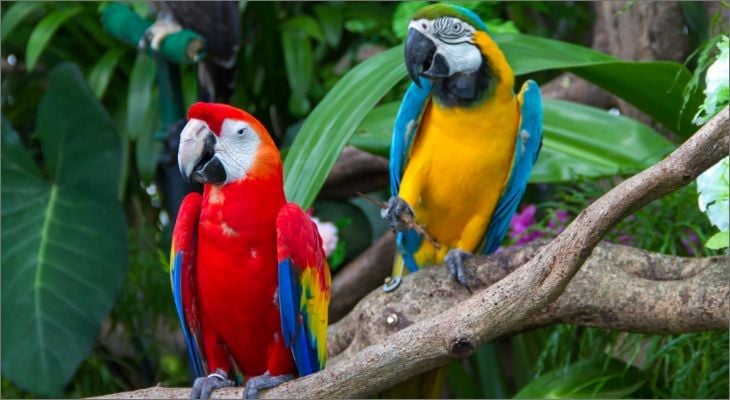
If you've decided to enter the entertaining world of bird ownership, you may be thinking about adopting a macaw. These giants of the parrot world make fun companions, but here are some things you should consider before making that purchase.
What You Should Know About Macaw Ownership
Macaws can make a variety of noises (most of them loud) to express different emotions or intentions. You can even teach your macaw to talk. However, if you live in an apartment or have other noise concerns, this bird probably isn't an ideal pet choice for you.
Depending on the size of your individual macaw, you may have to invest in a relatively large cage, along with plenty of toys to keep this intelligent bird occupied and happy. Make sure that your macaw can fit comfortably in its cage with its tail feathers pressing or dragging on any part of it.
Which Macaw Is Best for Beginners?
Macaws can vary widely in size, color, and personality. Since smaller macaws tend to prove more manageable than large ones, you may want to start with a Hahn's macaw. This mini-macaw attains a length of 12 to 14 inches, making it relatively easy for a beginner to handle.
If you feel ready to move up to the larger species of macaws, your best bet as a beginner would probably be to purchase a Blue and Gold macaw. This enormous bird is playful, affectionate, adaptable, and relatively affordable.
Caring for Your New Macaw
Macaws can get sick just like any other kind of pet. As a macaw owner, you'll want to schedule regular veterinary exams and watch your pet closely for health problems. Don't be alarmed if your macaw sneezes occasionally; this is normal behavior. However, if the nasal discharge looks thick instead of clear, schedule a vet appointment. Macaws can also suffer from beak alignment problems, heart issues, and a pneumonia-like ailment called psittacosis. A bored, frustrated, or anxious macaw may pluck at its feathers.
Don't fall into the trap of feeding only birdseed to your macaw, no matter how much it may like this treat. Macaws require balanced nutrition, which they get in the wild by eating a variety of fruits, berries, seeds, nuts, and vegetation such as leaf buds. The easiest and most effective way to provide this balance is through pellets available at your local pet store.
